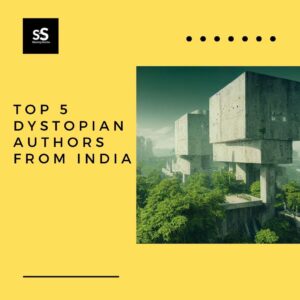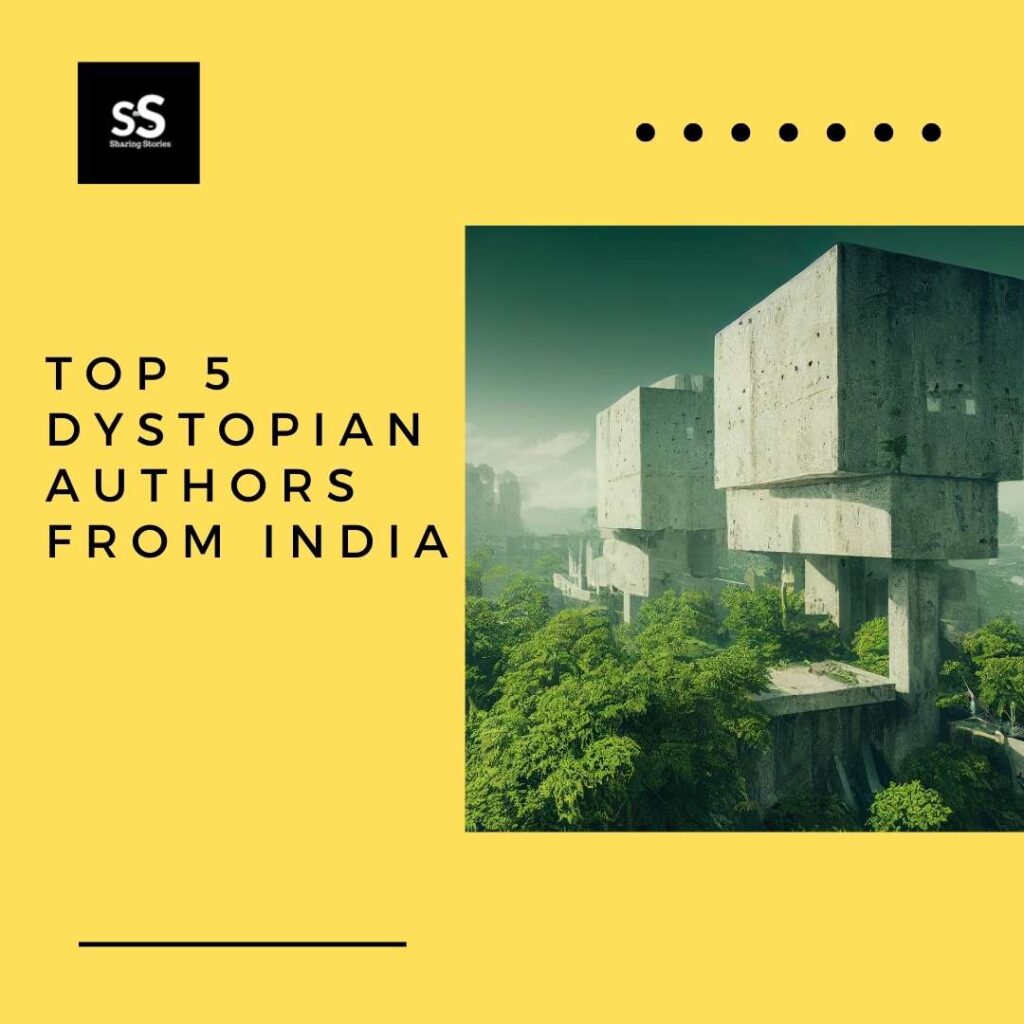Top 5 dystopian authors from india
Understanding Dystopian Literature and Indian Authors
Dystopian literature has captivated readers worldwide with its dark and thought-provoking narratives that portray oppressive societies, totalitarian regimes, and bleak futures. This genre serves as a mirror to reflect on contemporary issues, sparking critical discussions on power, control, and societal structures. The exploration of dystopian themes in Indian literature adds a unique and culturally relevant perspective to this global genre.

Table of Contents
Definition of Dystopian Literature
Dystopian literature presents fictional worlds where society is undesirable or frightening.
It often critiques existing social, political, and economic systems.
The genre commonly explores themes like surveillance, government control, and loss of individual freedom.
Popularity of Dystopian Fiction
Dystopian fiction has gained popularity due to its ability to engage readers in complex moral dilemmas.
The genre’s capacity to envision potential futures resonates with readers’ concerns about the present.
Dystopian works often challenge readers to reflect on the consequences of unchecked power and societal apathy.
Importance of Exploring Dystopian Themes in Indian Literature
Indian authors contribute diverse cultural perspectives to the dystopian genre.
Indian speculative fiction explores unique interpretations of dystopia rooted in local histories and traditions.
By delving into dystopian themes, Indian literature sheds light on pressing social issues and political landscapes within the country.
Review of Top 5 Dystopian Authors from India
- The emergence of Indian authors in the dystopian genre signifies a growing interest in speculative and futuristic narratives.
- These authors offer a rich tapestry of stories that blend traditional Indian storytelling with contemporary themes of technology, politics, and societal change.
1. Amitav Ghosh
Brief Biography of Amitav Ghosh
Amitav Ghosh is a renowned Indian author known for his impactful storytelling and deep exploration of historical and contemporary themes.
Analysis of His Dystopian Works
Ghosh seamlessly weaves together elements of history, culture, and speculative fiction in his dystopian narratives, offering readers a unique perspective on societal issues.
Themes Explored in His Dystopian Literature
Indian dystopian authors like Ghosh often delve into the complexities of climate change, social inequality, and the consequences of human actions on the environment in their works.
2. Chitra Banerjee Divakaruni
Introduction to Chitra Banerjee Divakaruni
Divakaruni is a prolific author known for her poignant prose and engaging storytelling that often blends elements of fantasy and dystopia.
Exploration of Her Dystopian Writing Style
Dystopian literature in India takes on a new dimension through Divakaruni’s evocative narratives that challenge societal norms and expectations.
Impact of Her Dystopian Works on Indian Literature
Divakaruni’s thought-provoking dystopian tales have influenced a generation of readers and writers, shaping the landscape of Indian speculative fiction.
6. Samit Basu
Background of Samit Basu as a Dystopian Author
Basu brings a fresh and dynamic approach to dystopian fiction, blending elements of humor, social commentary, and futurism in his works.
Notable Contributions to Indian Dystopian Literature
Indian science fiction writers like Basu push the boundaries of imagination, creating intricate worlds that challenge traditional narratives and perceptions.
Unique Elements in Basu’s Dystopian Narratives
Basu’s narratives often explore the intersection of technology, culture, and identity in a rapidly changing world, offering readers a glimpse into imagined futures in Indian literature.
7. Lavanya Lakshminarayan
Overview of Lavanya Lakshminarayan’s Dystopian Themes
Lakshminarayan’s dystopian works delve deep into themes of power, resistance, and the human condition in a world marked by chaos and uncertainty.
Analysis of Her Dystopian Novels
Through her narratives, Lakshminarayan sparks discussions on societal structures and the impact of individual choices on collective destinies.
Reception of Lakshminarayan’s Work in the Literary World
Lakshminarayan’s bold and thought-provoking works have garnered critical acclaim, positioning her as a South Asian dystopian writer to watch in the contemporary literary scene.
8. Supriya Dravid
Introduction to Supriya Dravid as a Dystopian Author
Dravid’s dystopian stories are a powerful reflection of the intersection of human emotions, technology, and societal constructs in a rapidly evolving world.
Themes and Motifs in Dravid’s Dystopian Stories
Contemporary Indian authors like Dravid challenge readers to explore the darker aspects of humanity, questioning ethical boundaries and the consequences of progress.
Critical Reception of Dravid’s Dystopian Works
Dravid’s evocative storytelling and immersive world-building have captivated audiences, solidifying her position as a leading voice in Indian dystopian novels.
FAQs:
Who are some of the notable dystopian authors from India?
The top 20 dystopian authors from India include Amitav Ghosh, Chitra Banerjee Divakaruni, Samit Basu, Lavanya Lakshminarayan, Supriya Dravid, Manjula Padmanaban, Devapriya Roy, Indra Das, Mimi Mondal, and Krishna Udayasankar, among others.
What are the key themes explored in the dystopian works of Indian authors?
Indian dystopian authors often delve into themes such as societal structures, technological advancements, environmental concerns, political issues, cultural dystopias, and the impact of globalization on Indian society.
How have Indian authors contributed to the dystopian genre globally?
Indian authors bring diverse cultural perspectives and unique storytelling techniques to the dystopian genre, adding richness and depth to global discussions on dystopian themes.
What sets Indian dystopian literature apart from Western dystopian works?
Indian dystopian literature often incorporates elements of Indian mythology, folklore, and socio-political contexts, providing a distinct flavor to the genre compared to Western dystopian narratives.
Are there emerging Indian authors in the dystopian genre worth exploring?
Yes, emerging talents like Lavanya Lakshminarayan, Supriya Dravid, Devapriya Roy, and Mimi Mondal are making significant contributions to Indian dystopian literature with their fresh perspectives and thematic explorations.
Conclusion:
As Indian literature continues to evolve and embrace diverse genres, the realm of dystopian literature has seen a surge of creativity and thought-provoking narratives from Indian authors. With the top 20 dystopian authors from India showcasing their unique voices and perspectives, the genre is enriched with cultural nuances, socio-political commentaries, and futuristic imaginings that resonate with readers worldwide. Exploring the works of these talented authors not only offers insights into the complex issues of our times but also highlights the richness and vibrancy of modern Indian literary landscape in the realm of dystopian fiction.
Discover marketing services, interviews & publishing tools at SharingStories.



